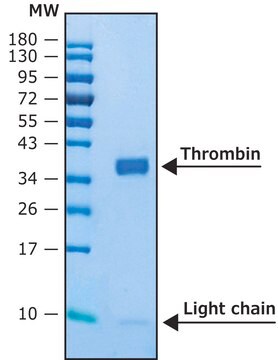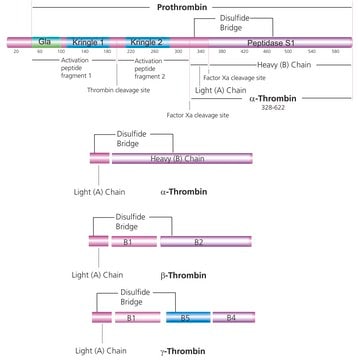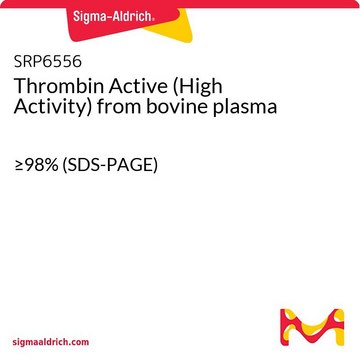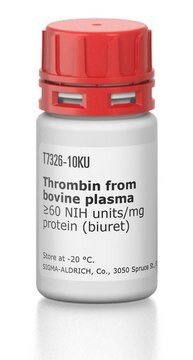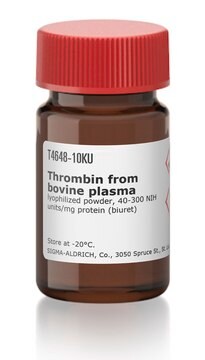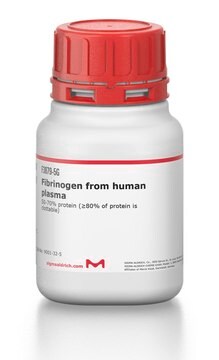SRP6557
Thrombin Active from human plasma
≥95% (SDS-PAGE), recombinant, lyophilized
Synonyme(s) :
Activated Factor IIa
About This Item
Produits recommandés
product name
Thrombin Active from human plasma, ≥95% (SDS-PAGE)
Source biologique
human
Pureté
≥95% (SDS-PAGE)
Forme
lyophilized
Puissance
>3000 units/mg
Poids mol.
37 kDa
Conditionnement
pkg of 1000 units
pkg of 250 units
Numéro d'accès UniProt
Conditions d'expédition
wet ice
Température de stockage
−20°C
Informations sur le gène
human ... F2(2147)
Description générale
Actions biochimiques/physiologiques
Forme physique
Reconstitution
Clause de non-responsabilité
Mention d'avertissement
Danger
Mentions de danger
Conseils de prudence
Classification des risques
Eye Irrit. 2 - Resp. Sens. 1
Code de la classe de stockage
11 - Combustible Solids
Classe de danger pour l'eau (WGK)
WGK 3
Certificats d'analyse (COA)
Recherchez un Certificats d'analyse (COA) en saisissant le numéro de lot du produit. Les numéros de lot figurent sur l'étiquette du produit après les mots "Lot" ou "Batch".
Déjà en possession de ce produit ?
Retrouvez la documentation relative aux produits que vous avez récemment achetés dans la Bibliothèque de documents.
Les clients ont également consulté
Notre équipe de scientifiques dispose d'une expérience dans tous les secteurs de la recherche, notamment en sciences de la vie, science des matériaux, synthèse chimique, chromatographie, analyse et dans de nombreux autres domaines..
Contacter notre Service technique